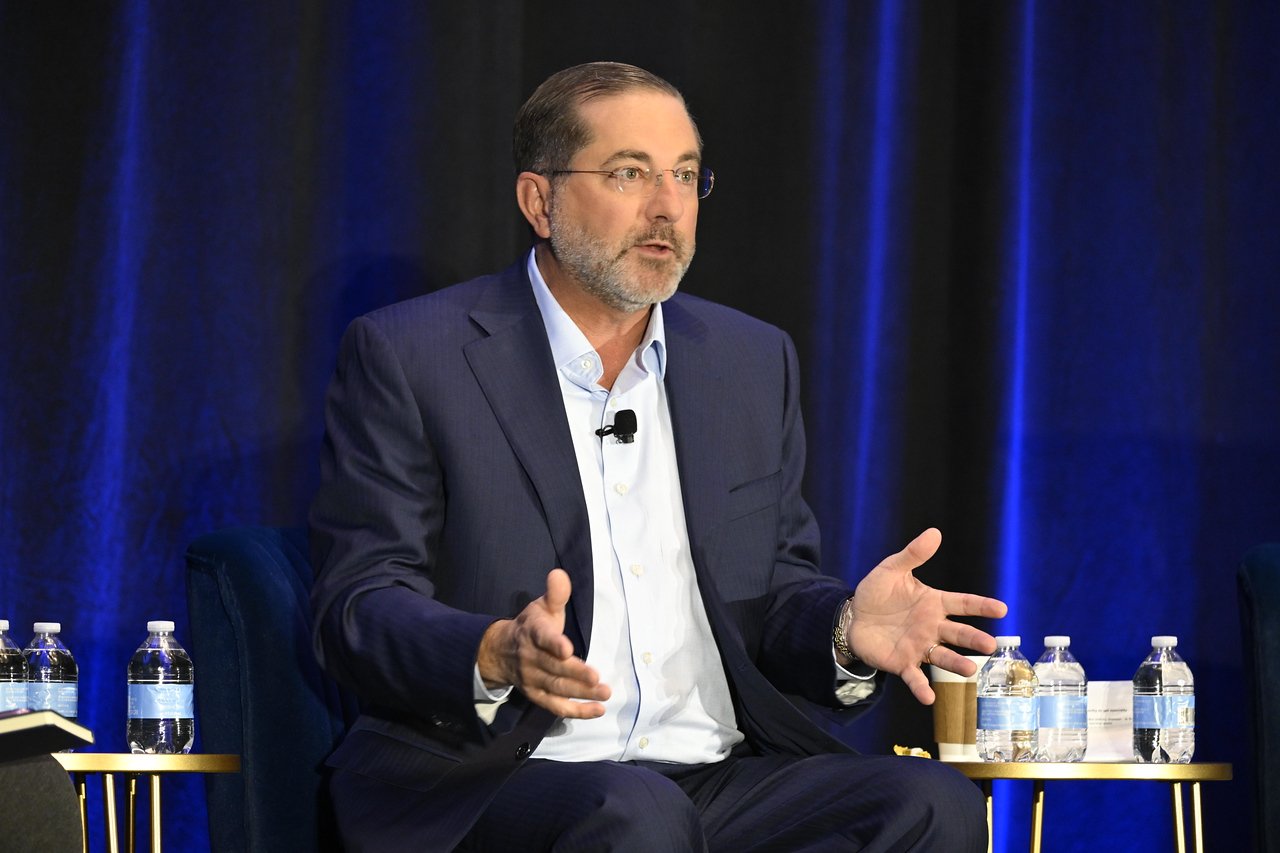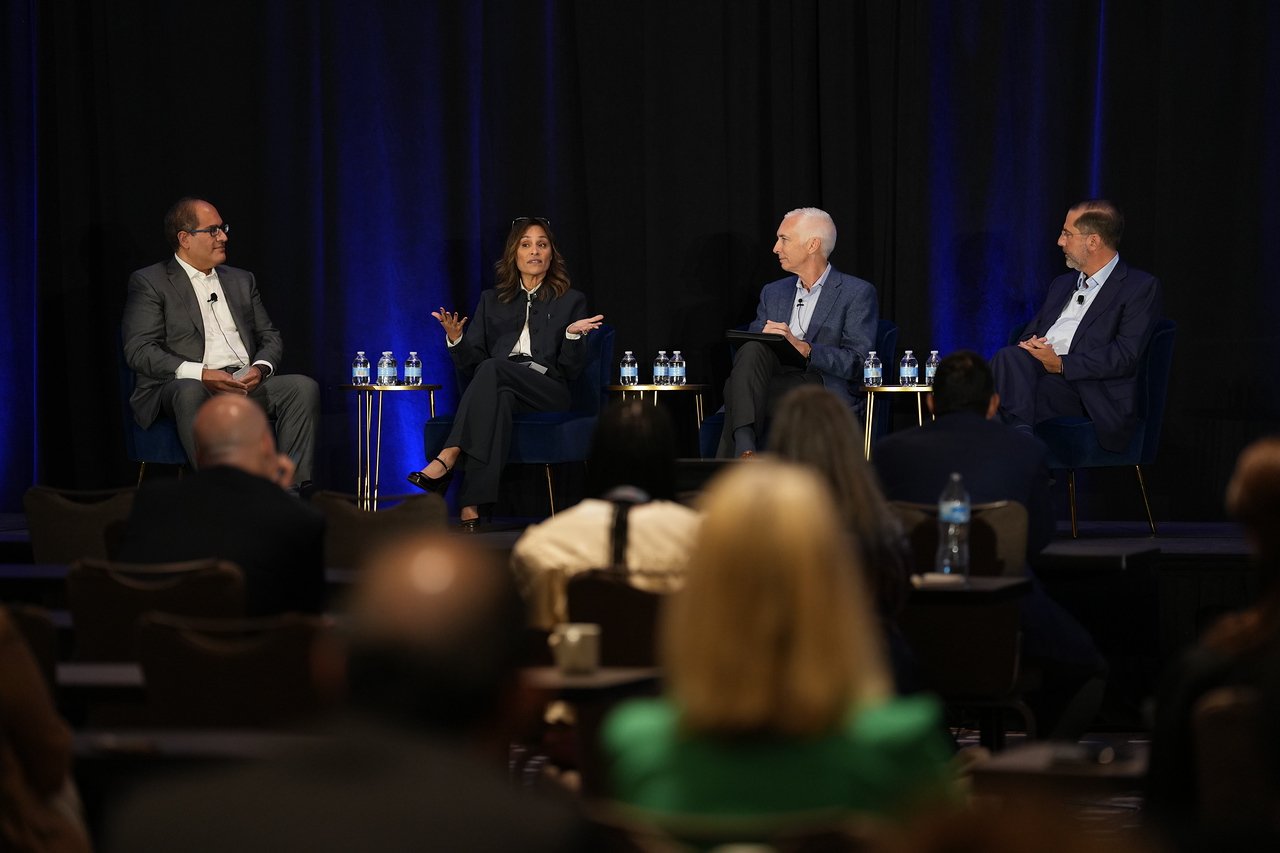“It’s Time to Pull the Band-Aid Off”: Our Health System is Ready to Deliver on Value-Based Care
Alex Azar, former secretary of the U.S. Department of Health and Human Services, shared his perspective on where value-based care is succeeding and challenges standing in the way of broader adoption at the Fierce Health Payer Summit.
tags

During his tenure as secretary of the U.S. Department of Health and Human Services (HHS), Alex Azar was the driving force behind the Advancing American Kidney Health (AAKH) Initiative, which the White House and HHS unveiled in 2019 to improve care for people living with kidney disease.1 The initiative’s goals were to:
- Prevent kidney failure through better diagnosis, treatment and preventive care
- Increase affordable alternative treatments and educate patients on their options while also encouraging the development of artificial kidneys
- Increase access to kidney transplants by modernizing the transplant system
The AAKH also paved the way for the development of innovative new value-based payment models for kidney care. Azar has advocated heavily for the expansion of these models, calling on the government and commercial payers to stop experimenting with value-based care and “simply implement change.”2
At the 2024 Fierce Health Payer Summit in Austin, Azar led a keynote discussion and joined an industry panel on why the slow, incremental march toward value-based care needs to evolve into real commitment to change and how we can advance implementation of value-based payment models. Below are highlights from his recent mainstage sessions.
Successful value-based kidney care models lay the foundation for broader payment reform
During his keynote, Azar made the bold claim that “it’s time to pull the band-aid off” and be more robust in embracing value-based care. He argued that companies such as value-based kidney care provider Interwell Health, where he serves on the board, have established the groundwork for value-based care and are delivering results that show there is a sustainable path forward for the healthcare industry.
There is a reason why kidney care has become an incubator for healthcare payment reform. The whole-person nature of managing chronic kidney disease (CKD) and the longitudinal relationships nephrologists tend to establish with their patients make it an ideal specialty for piloting payment models where clinicians are reimbursed for long-term outcomes, rather than services rendered.
“[In] kidney care, once somebody goes into especially advanced CKD/ESRD [end-stage renal disease], their nephrologist ends up functioning very much as their primary care…that’s the holistic center, their medical home,” said Azar. “Kidney care is a very rational next step from primary care when thinking about capitation and risk in value-based care.”
“Kidney care is a very rational next step from primary care when thinking about capitation and risk in value-based care.”
While kidney care may be a rational next step for value-based care, Azar also sees it as a proof point supporting the case for expanding pay-for-performance models more broadly. He pointed to recently released data showing strong results from the first year of the government’s value-based kidney care program. Reports from the Centers for Medicare & Medicaid Services (CMS)3 and the Lewin Group4 show the model is driving statistically significant increases in optimal starts and home dialysis rates, more consistent depression screening, and increased waitlisting for transplant — as Azar put it, “a good precursor, hopefully, to actual transplantation.” He noted that participating practices aligned with Interwell, which had 80 percent of the top performing practices in the country, also demonstrated cost savings in the model.
Across the board, said Azar, both government and commercial value-based kidney programs are demonstrating improved quality outcomes and cost savings, indicating the industry is ready to build on its early success in pay-for-performance models. “We have been doing this value-based transformation for the most part as a voluntary [system] enticing entities and providers into it,” said Azar. “We’ve now learned how to do this. I think it’s time to burn those boats and just say, ‘This is how we pay.’”
Wide-scale adoption of value-based care requires the right incentives, clinician buy-in, and sustained government support
Azar acknowledged there are challenges standing in the way of a complete transition from fee-for-service to value-based care. To start, the healthcare industry is still figuring out how to pay for services that we know will improve outcomes. “You know what the answer always is?” Azar asked the audience. “Whoever owns the risk for that cost.”
To address reimbursement and payment challenges, Azar says we need to align incentives with improving holistic care for individuals. For instance, he highlighted the pressing need to address social determinants of health (SDoH). “We all know there are so many things that are kind of pennywise, pound foolish in our system around social determinants,” he said. “And that’s why I’m so passionate about the idea that we need to get our incentives aligned where the provider and the patient are working together to deliver the better outcome and better quality.”
Physician buy-in is also paramount to wide-scale implementation of value-based care. Azar estimates 20 percent of doctors are fully bought in on value-based care today. For these clinicians, the shift to value-based care means they will finally be reimbursed for how they have always delivered care, or how they have always wanted to deliver care. For most clinicians who are not yet bought in, “they just have to be taught and have the enabling tech systems, back-office support, care extenders, et cetera to let them do it,” said Azar. “But they want to be there.”
Physician networks that are tightly aligned with financial incentives can be a key enabler for helping clinicians make the transition to value-based care, added Azar. “I think some of the more defused enablement platforms just aren’t successful because you really have to change how you practice medicine,” he said.
In addition, increased government support is needed. “The government has got to be a reliable business partner. It has got to be a public-private partnership,” said Azar. “And the government has got to be stable, predictable, transparent with its data.”
Data remains one of the biggest barriers to delivering on the promise of value-based care
As Azar highlighted, both the government and private payers are demonstrating that value-based care can drive improved patient outcomes and cost savings. But these results are not easy to achieve. Measurably improving clinical outcomes while reducing costs requires identifying patients at high risk and focusing in a holistic way on those patients, said Azar. To do so, providers need increased data sharing and interoperability.
Azar called access to transparent, reliable data “a huge barrier” to value-based care, noting the challenges of patient attribution and how hard it is for providers to even determine which patients they are accountable for, let alone who is at risk of progression or hospitalization. “If you have 100 patients, who are the 20 that you really have to focus on, that need to go in terms of engagement levels from three to four moments of connectivity to 12 to 13?” asked Azar. “How do you do that? You have to have really good medical records.”
As an example of how data and analytics can support the transition to value-based care, Azar described how Acumen Epic Connect, a nephrology specific electronic health record (EHR), helps with risk stratification so providers can understand where to focus their attention. “You have advanced predictive analytics and AI to enable you to see the warning signs of who is progressing, who is approaching the crash [into] dialysis, who is transplant eligible, all of those criteria that help you manage your patients and census better,” said Azar.
While Acumen is enabling more data-driven, personalized kidney care, similar solutions are needed to support other specialties and clinicians outside of nephrology. Azar’s co-panelists agreed: data — and specifically access to good data — remains a problem.

Will 2025 be the year the healthcare industry rips off the band-aid and commits to value-based care?
Going into 2025, Azar remains “bullish” on the future of value-based care and believes the industry will continue to build on the significant progress made during his tenure at HHS to innovate payment and care models. “We changed the paradigm of how you think about value-based care,” Azar told the audience, while acknowledging progress is still needed. He recognized that the industry will only realize the full promise — and cost savings — of value-based care when it can effectively “keep people out of the hospital and the nursing home.”
As the government and private payers continue to invest in value-based care, are we at a tipping point for large-scale healthcare transformation? The industry has proven its readiness to evolve, says Azar. Now it’s time to rip the band-aid off and commit to real change.
References
- American Society of Nephrology: Advancing American Kidney Health Initiative — A Primer.
https://www.asn-online.org/policy/webdocs/page.aspx?code=220 - POLITICO Pro: ‘Let’s go’: Trump’s HHS secretary wants CMS to ditch value-based experiments. https://subscriber.politicopro.com/article/2023/12/lets-go-trumps-hhs-secretary-wants-cms-to-ditch-value-based-experiments-00131157
- CMS: KCC PY 2022 Reconciliation Data Results and Data Dictionary.
https://www.cms.gov/priorities/innovation/files/kcc-model-py22-recon-data.xlsx - Lewin Group: Kidney Care Choices (KCC) Model First Annual Evaluation Report, Performance Year 2022. https://www.cms.gov/priorities/innovation/files/kcc-model-py22-recon-data.xlsx